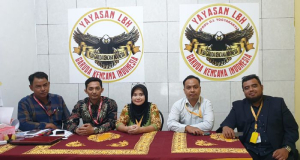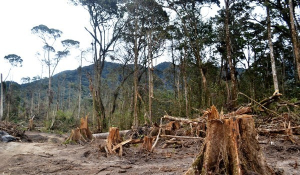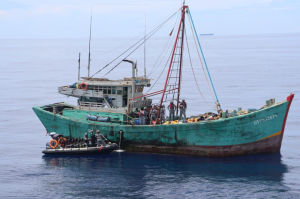Jokowi reopens sea sand exports after a 20-year ban, drawing criticism from environmentalists
Indonesian President Joko “Jokowi” Widodo issued Government Regulation (PP) No. 26 of 2023 concerning the Management of Sedimentation Products in the Ocean (PP 26/2023).
This regulation, particularly in Chapter IV on Utilization, Article 9 paragraph 2, permits the resumption of sea sand exports, after a 20-year ban.
The new regulation outlines provisions for the utilization of marine sedimentation products, specifically sea sand, in various applications including reclamation, government infrastructure projects, and infrastructure development by business actors to exports.
According to paragraph (2) letter d in PP 26/2023, export is permitted as long as domestic needs have been fulfilled and the export is conducted in compliance with the provisions of laws and regulations.
Requirements for Marine Sand Utilization Permit
Business entities intending to undertake activities related to the cleanup of sedimentation in the sea (as stated in Article 6) and the utilization of sedimentation outcomes in the sea (as mentioned in Article 9) are required to possess a Marine Sand Utilization Permit.
Article 10 states that the sale of sea sand is also permissible only upon obtaining a mining activity license for sales issued by the minister responsible for cases in the mineral and coal industry.
Additionally, sea sand permits can be acquired through the Governor’s authority following the completion of a research team’s study and fulfilment of requirements in accordance with the legal provisions.
The permit application must be accompanied by a proposal and a comprehensive work plan encompassing the objectives and utilization of sea sand, collaborating partners, and the exact location or coordinate points of the water area they want to utilize.
However, this policy, including the provision for sea sand export permits, has drawn strong criticism from several environmental organizations.
Walhi criticism of policy: threats to ecosystems and communities
Riau Regional Executive Director of the Indonesian Forum for Environment (Walhi) Boy Jerry Even Sembiring expressed strong concerns about the president’s decision, citing potential threats to marine, coastal, and small island ecosystems, as well as the well-being of local communities residing in these areas.
“The policy issued by Jokowi contradicts his commitment to protecting marine ecosystems, coastal areas, and small islands,” Boy said, quoted by Tempo on Sunday (28/5).
Regarding climate change, Boy argued that the sale of sea sand would contribute to the increasing threat of sea-level rise. Additionally, he emphasized that such extractive activities would worsen the issues of seawater erosion and intrusion.
Walhi also raised concerns about state sovereignty. Boy stated this policy reflects a lack of awareness regarding national borders which could diminish if sand mining leads to the erosion of shorelines on the outermost islands.
Greenpeace critiques of Indonesian inconsistency in sustainable policy
Greenpeace Indonesia resonated Walhi’s statement. A Greenpeace Ocean Campaigner Alfadillah pointed out that the decision to reopen sea sand exports could potentially result in food scarcity since the sea is a primary source of sustenance for many people.
According to Afdiallah, Jokowi’s policy serves as evidence that the Indonesian government lacks consistency in implementing sustainable policies for marine ecosystems and struggles to effectively manage resources.
“And it seems that the government has not learned from its mistakes,” Alfadillah said on Sunday (28/5).
CERI’s call for transparency and community discussions
Meanwhile, Director of the Center of Energy and Resources Indonesia (CERI) Yusri Usman highlighted the importance of involving the public in sea sand mining activities. This includes engaging with fishermen and residents of small islands located in the affected zones, where sand extraction will take place.
Yusri claimed he received information that there are four companies that have collaborated with politicians to decide on the issuance of PP 26/2023.
Yusri also urged the Maritime Affairs and Fisheries (KKP) Ministry to be transparent and have comprehensive discussions with the community beforehand.
In addition, he also emphasized that the PP should not conflict with Law No. 1 of 2014 on the management of coastal areas and small islands and Regional Regulation (Perda) on zoning plans for coastal areas and small islands (RZWP3K).
Indonesia’s previous ban on sea sand exports
It is known that previously, Indonesia implemented a ban on sea sand exports as stipulated in the Industry and Trade Minister’s Decree (SK) No 117/MPP/Kep/2/2003, which temporarily suspended the exportation of sea sand. The decree specifically aimed to mitigate the risk of extensive environmental harm, in the form of sinking small islands, especially around the outermost areas of Indonesia’s territorial boundaries in the Riau Islands.
Another reason for the ban was the incomplete maritime boundary between Indonesia and Singapore. The reclamation project in Singapore, which derives its raw materials from the marine sand of the Riau Islands waters, is feared to affect the territorial boundary between the two countries.
Before the ban, Singapore was Indonesia’s biggest market for sea sand export, with the latter selling around 250 million cubic meters per year to the neighbouring country.
Tag
Already have an account? Sign In
-
Start reading
Freemium
-
Monthly Subscription
30% OFF$26.03
$37.19/MonthCancel anytime
This offer is open to all new subscribers!
Subscribe now -
Yearly Subscription
33% OFF$228.13
$340.5/YearCancel anytime
This offer is open to all new subscribers!
Subscribe now






